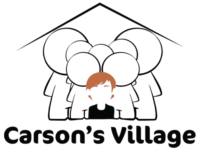Grieving is a personal journey, but that doesn’t mean you have to walk it alone. Support groups can be an invaluable resource for those experiencing loss, offering connection, understanding, and shared strength from people who have walked similar paths.
While grief impacts each of us differently, support groups create space for honest conversations and compassionate listening, helping you process your emotions at your own pace.
Why Consider a Grief Support Group?
-
Shared Understanding
Connecting with others who understand the depth of loss can provide comfort and reduce feelings of isolation. -
Emotional Outlet
Support groups offer a safe environment to express feelings that might be difficult to share elsewhere. -
Practical Coping Strategies
Group members often share helpful coping techniques and personal experiences that can guide you through your grief. -
Validation of Emotions
Hearing others share their journeys reinforces that there’s no right or wrong way to grieve — your feelings are normal and valid. -
Encouragement Toward Healing
Seeing others further along in their grief journey can provide hope and reassurance that healing, in time, is possible.
How to Choose the Right Support Group
Not all groups are the same — finding one that fits your needs will help you get the most out of the experience.
Here’s what to consider:
-
Type of Group
Some groups focus on specific types of loss, such as the loss of a child, spouse, sibling, or friend. Others may center on circumstances like illness, suicide, or sudden violence. -
Group Size and Format
Decide if you prefer a smaller, more intimate group or a larger one with varied perspectives. Groups can meet in person, virtually, or over the phone. -
Structure and Facilitation
Some groups are led by professionals, while others are peer-led. Consider what feels most comfortable for you. -
Meeting Frequency
Groups vary in how often they meet — weekly, biweekly, or monthly. Think about what schedule will best support your healing. -
Comfort Level
It’s okay to try different groups to find the right fit. Trust your instincts about where you feel safe and supported.
Ways to Find a Grief Support Group
- Use the Carson’s Village Interactive Map
Selecting your state and “Grief Support” and the side bar will list Grief Centers as well as vetted councelors.
-
Ask Healthcare Providers
Doctors, counselors, or hospice workers often have information about local or virtual support groups. -
Inquire at Community Centers or Places of Worship
Many faith communities and community centers host or can recommend support groups. -
Talk to Funeral Homes
Funeral directors frequently maintain lists of local grief support resources. -
Contact Local Counseling Centers
Many mental health providers offer group therapy or can direct you to peer-led support options. -
Ask Trusted Friends or Family
Personal recommendations can be a good way to find groups with positive experiences.
National Grief Support Organizations
Here are a few National Grief Support Organizations that may have chapters in your area or virtual options. Note that not all the organizations are universally applicable to your particular grief:
- American Foundation for Suicide Prevention
- Bereaved Parents of the USA
- Center for Loss & Life Transition
- Grief.com
- Fernside
- Grief in Common
- The Compassionate Friends
Support groups are not about finding quick solutions — they’re about finding support, understanding, and community in the midst of loss. Whether you’re looking for a space to share your story or simply want to listen and know you’re not alone, these groups can offer meaningful connection and hope.
Remember, healing is not linear. Wherever you are in your journey, there is value in surrounding yourself with others who understand.
